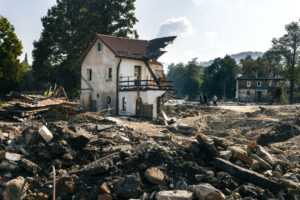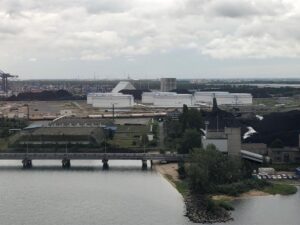What goes on in Poland on the 7th of September.
Poland and Denmark will discuss Baltic Pipe and RES in Copenhagen
On Monday, September 10, Copenhagen will host representatives of Poland and Denmark gathered at a conference dedicated to cooperation between the two countries in the Energy Union on the Baltic Pipe and Renewable Energy Sources projects.
The organizers of the event are the Ministry of Foreign Affairs of the Republic of Poland, operators of the gas transmission networks: Energinet.dk and Gaz-System, PGNiG, as well as DI and State of Green organizations that prepare business delegations for the COP24 climate summit in Katowice.
The sides will talk about the possibilities of deepening cooperation for the energy transformation, and thus using the Baltic Pipe gas pipeline, which will provide new, less-emission fuel, i.e. gas, as well as energy efficiency and RES.
The topic of the talks is to be the progress of Baltic Pipe, the Polish Renewable Energy Sources Act and COP24. Energy ministers from both countries, government plenipotentiary for strategic energy infrastructure, representatives of companies, including Danish Orsted and Vestas, interested in the development of wind farms in Poland will attend the talks. The representative of the Polish Institute of International Affairs will also take part in the discussion.
Cutting off energy supplies from Russia may cost Lithuania EUR 1,5 billion. Vilnius wants to become independent
Next year, Lithuania will want to test disconnection from the electricity system dependent on Russia and Belarus. This is to be the introduction to the synchronization of electricity with Europe, which is to take place in 2025. Lithuanians, however, do not exclude „disturbances” when testing in 2019.
Synchronization and tests
During the Economic Forum in Krynica, head of the energy committee in the Lithuanian parliament, Virgilijus Poderys, appeared on the panel „Energy transmission infrastructure for hard times”. He spoke about the fact that Lithuania adopted an energy strategy aimed at energy independence. It assumes independence in the area of electricity, oil and gas supplies from the East. – We have had a lot of discussions on this subject. A commission has been formed, which has the right to block investments in the energy sector. It researches acquisitions and personnel matters. It also gives you the option of blocking business transactions if they threaten your security – said Poderys.
Lithuania, Latvia and Estonia plan to synchronize with the European energy system by 2025. – Currently, Vilnius, Riga and Tallinn are dependent in energy on Moscow, which is not comfortable for us. The cost of a sudden shutdown of energy supplies to Lithuania is EUR 1,5 billion. Next year, desynchronization tests of the system operation in the isolated mode will take place. There may then be attacks and system disruptions. However, we are now planning a second connection between Poland and Lithuania, which will strengthen our security. We have a cyber security center in Vilnius that deals with the security of energy supply – he said.
He stressed that now, in addition to the connection with Poland (LitPol Link), there are also those with Sweden and Finland. In the case of a cable to Sweden extending across the Baltic Sea, there is an additional risk, which means that Lithuania intends to build as many AC/DC connections as possible. BiznesAlert.pl has repeatedly reported problems in the construction of the NordBalt connection caused by the activities of the Russian fleet.








